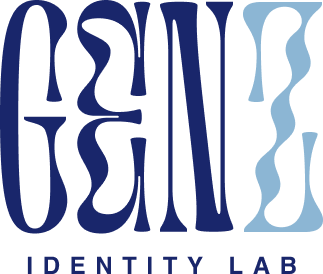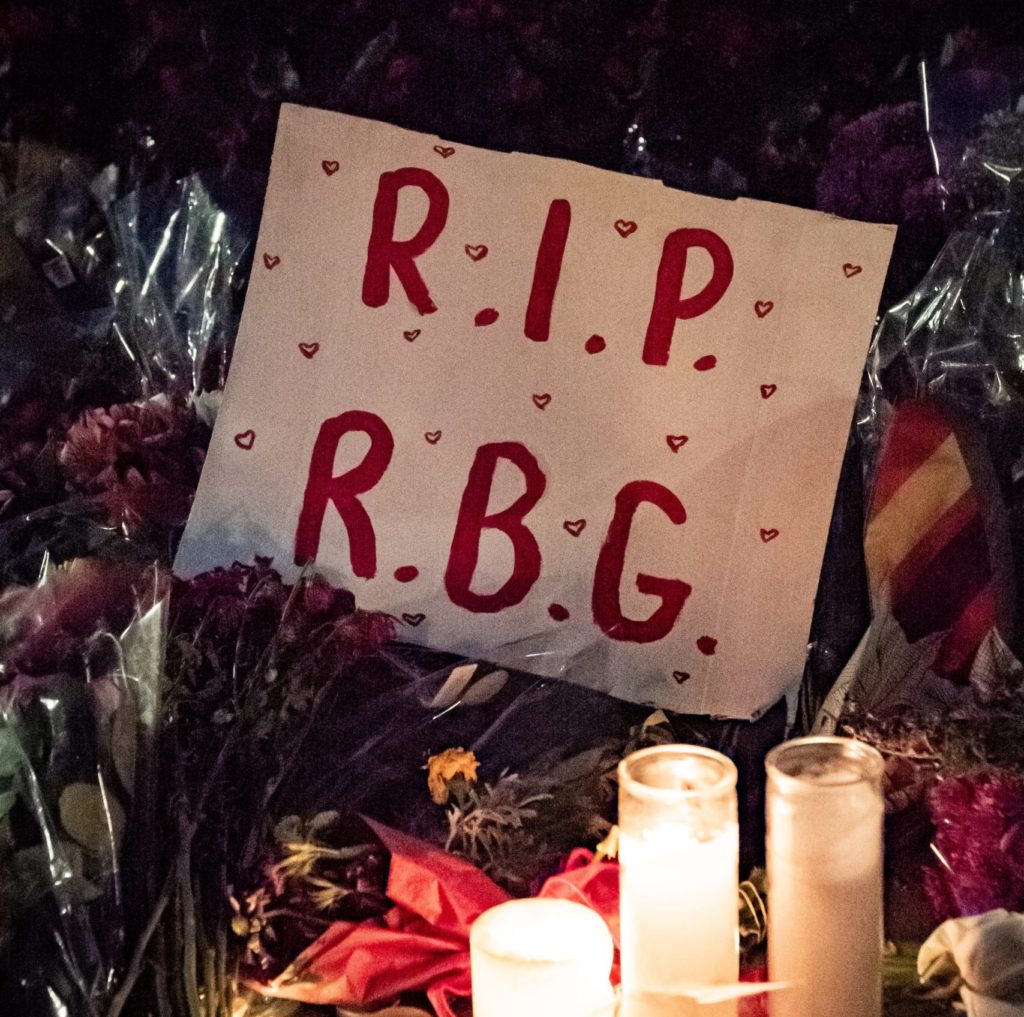After news of the U.S. Supreme Court Justice Ruth Bader Ginsburg’s passing broke on Friday, September 18, the Internet lit up with articles acknowledging her legacy and achievements. Justice Ginsburg was a pioneer for many marginalized groups, including the LGBTQ+ community. During her time on the Supreme Court, she changed the course of LGBTQ+ history and became a Gen Z icon in the process, earning the name “Notorious RBG.”
Queer youth want to celebrate her extraordinary life and show the utmost gratitude for Justice Ginsburg’s expansion of the American definition of equality. However, the political implications of one less ally in the judicial system, no less in the Supreme Court, have dominated the narrative in the wake of Justice Ginsburg’s death. The prospect of her replacement has made millions of LGBTQ+ Americans, including Gen Zers, extremely anxious about what the future holds.
Justice Ginsburg’s Legacy
Throughout her judicial tenure, Justice Ginsburg was a pioneer for many marginalized groups. Dubbed “a giant of justice” by Rea Carey, the executive director of the National LGBTQ Task Force, she voted in favor of every decision supporting LGBTQ+ rights. One of her earliest cases involving the queer community was Romer v. Evans, a 1996 case that recognized queer people as a protected group under American law. Six years after that, Ginsburg’s ruling in Lawrence v. Texas decreed that the criminalization of homosexuality was unconstitutional. She voted to overturn the same-sex marriage ban as well as workplace discrimination laws based on gender and sexual identity.
“Ginsburg fundamentally expanded access to the American promise of liberty and equality for all – a promise that has never been fully achieved – and her legacy is particularly meaningful for the countless LGBTQ+ Americans whose lives she touched,” wrote Matt Baume for Them.
Austin Channing Brown, a media producer and best-selling author, took to Twitter after hearing the news of Justice Ginsburg’s death, writing, “I need to apologize in advance. I really want to pause and give RBG her flowers. She deserves so much praise and celebration. But right now I am overwhelmed by the prospect of what comes next. I’m so concerned about women’s rights, civil rights for poc, LGBT rights. I’m worried.”
According to the LGBTQ Victory Institute, over 843 LGBTQ+ people currently serve in elected offices across the country, but this number changes drastically at the federal level. Today, only nine United States Congresspeople are openly gay, lesbian, or bisexual. Although this number could change after November’s general elections, for decades, Justice Ginsburg has been the consistent, principal ally of the LGBTQ+ community within the highest government levels.
Implications of the Vacancy
In 2015, Senate Majority Leader Mitch McConnell responded to the Supreme Court ruling that legalized same-sex marriage, saying, “I’ve always felt that marriage is between one man and one woman and the Supreme Court has held otherwise. That’s the law of the land.” Five years later, President Trump and Senator McConnell are racing to replace Justice Ginsburg’s empty seat with a conservative voice before the election. If the Democratic House votes in favor of the nominee, the Republican-controlled Senate will almost definitely confirm their pick.
In 2017, a Lambda Legal analysis reported that almost one-in-three of Trump’s judicial nominees had records that “demonstrate hostility towards the rights of LGBT people.” All of President Trump’s top contenders to fill the Supreme Court vacancy hold anti-gay views, with some judges on the shortlist being directly associated with LGBTQ+ hate groups.
Seventh Circuit U.S. Appeals Court Judge Amy Coney Barrett is President Trump’s nominee. She is an “LGBTQ+ rights nightmare,” as Nico Lang described in an article for Them. “Organizations like the American Family Association, which was behind Target’s bathroom boycott, and the American Principles Project, which recently aired anti-trans ads in Michigan, backed [Barrett’s] nomination in 2018, in part because they believe she would help them chip away at LGBTQ+ equality. She also has ties to Alliance Defending Freedom, which defended anti-gay Colorado baker Jack Phillips in a 2018 Supreme Court case and has authored anti-trans bathroom bills in dozens of U.S. states.”
Barrett, if confirmed, would tilt the Supreme Court to a 6-3 conservative majority. Two of the President’s nominees have been confirmed so far, and a third appointee would mean that at least one-third of the Supreme Court would hold anti-LGBTQ+ beliefs. Without sufficient allyship, representation, or backing in Congress or the Supreme Court, protections for gay and transgender Americans can be easily overturned by Barrett or any other pick on the President’s shortlist.
Impact on LGBTQ+ Gen Zers
Justice Ginsburg provided a sense of safety for the LGBTQ+ community, especially younger members who are ineligible to vote or represent themselves in government. Many gay and transgender individuals felt safe knowing that Justice Ginsburg would fight for their rights and serve as a mouthpiece for queer Americans. However, with President Trump and Senator McConnell’s race against the clock to confirm a conservative nominee to be Justice Ginsburg’s antithetical replacement, this safety net will completely disappear.
“Now that RBG is gone, I am incredibly fearful for the future of my rights and safety as an American,” says 18-year-old Felipe Campano. “As queer people, we are still treated as second-class citizens in many ways, with several fights for LGBT+ equal rights still underway and ahead.”
President Trump’s nomination of a prejudiced candidate and their subsequent confirmation would secure this justice’s position on the Supreme Court for life and make a far-reaching impact on generations to come, before more progress towards equality can be made.
Over the past several days, Justice Ginsburg’s legacy as a progressive voice for equality and justice has been cemented. For queer Gen Zers, the feeling of helplessness is also being cemented. Without the ability to change the Supreme Court Justice nominations’ circumstances, LGBTQ+ youth are watching progress dissolve as the President appoints homophobia and secures inequality for years to come.

Born in New York City and now a frequent visitor, Liv moved to Miami at a young age and is a student at Ransom Everglades School where she is a member of the Speech & Debate and Academic teams. Liv is fifteen years old and most passionate about politics and innovation in education systems. An aspiring political analyst, in Fall 2020, Liv is launching Phos, a YouTube series for high school students that shines a light on and dissects recurring issues in the news and current events from multiple perspectives. She is thrilled to contribute to Gen Z Identity Lab to help share diverse points of view that move peer conversations from thoughts to actions to change.


